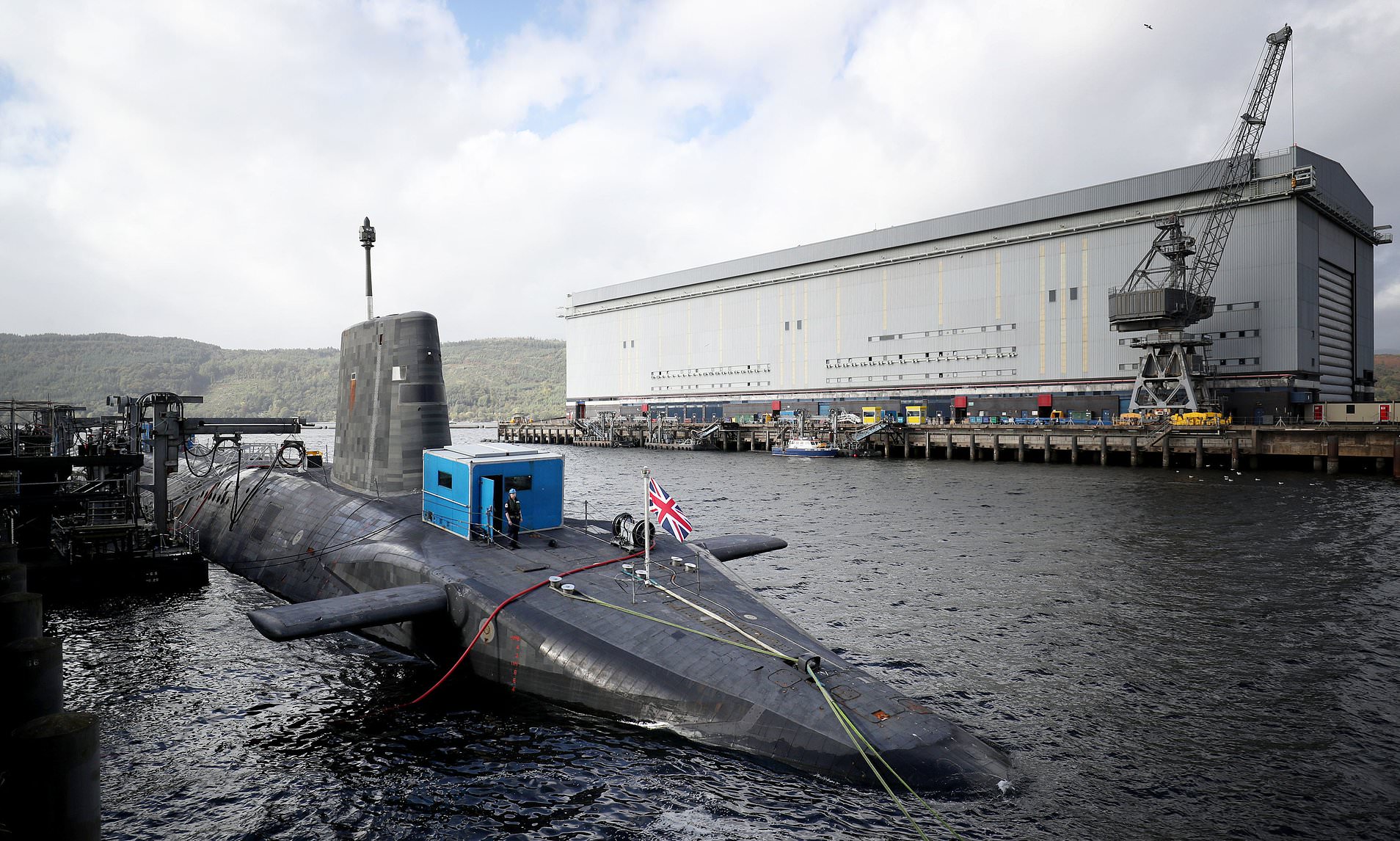Radioactive Water Leaks into Loch from Royal Navy Nuclear Base

Nuclear Waste Leak at Scottish Base Sparks Concerns
Recent revelations have brought attention to the issue of radioactive water leaking into the sea from a Scottish military base that houses the UK’s nuclear warheads. According to official documents, contaminated water was released into Loch Long, on the west coast, following repeated failures in the maintenance of a network of 1,500 water pipes located on the site.
The Royal Navy was found responsible for the contamination due to inadequate upkeep of these critical systems. The base, known as Coulport, is one of the most secure and secretive military sites in the UK, where the nuclear warheads for the Royal Navy’s fleet of four Trident submarines are stored.
The Role of the Scottish Environment Protection Agency (SEPA)
The Scottish Environment Protection Agency (SEPA) compiled the documents, which indicate that up to half of the components at the base had exceeded their design life when the leaks occurred. SEPA reported that the flooding at Coulport was caused by 'shortfalls in maintenance,' resulting in the release of low levels of tritium, a substance used in nuclear warheads.
In a 2022 report, the agency criticized the navy's failure to maintain equipment where the warheads were stored, noting that plans to replace the 1,500 pipes were deemed 'sub-optimal.' These findings came to light through confidential inspection reports and emails obtained via a freedom of information request, which were initially kept secret by the Ministry of Defence.
Legal Battle for Transparency
The leak of these files was only possible after a six-year legal battle, with the Scottish information commissioner, David Hamilton, ordering their release. The documents were eventually published by The Guardian and The Ferret, highlighting the lack of transparency surrounding the incidents.
Nuclear warheads are assembled at Coulport before being loaded onto Vanguard class submarines based at Faslane on Gare Loch. These submarines then embark on secret patrols as part of the UK’s nuclear deterrent. Tritium is regularly replenished in the warheads to ensure the weapons remain operational.
Incidents and Consequences
The files reveal multiple pipe bursts at Coulport, including one in 2010 and two more in 2019. One significant leak in August 2019 released 'significant amounts of water' that flooded a nuclear weapons processing area. This area was contaminated with low levels of tritium, which flowed through an open drain into Loch Long.
SEPA stated that the radioactivity levels in this incident were very low and did not pose a risk to human health. However, the agency identified 'shortfalls in maintenance and asset management' as the root cause of the failure. After an internal investigation and a SEPA inspection, the Ministry of Defence committed to 23 actions to prevent future incidents in March 2020.
Ongoing Issues and Public Reaction
Despite these measures, there were two further pipe bursts in 2021, including one in an area that also contained radioactive substances. This led to another SEPA inspection in 2022. David Cullen, a nuclear weapons expert with the defence thinktank Basic in London, expressed shock at the repeated pollution incidents and criticized the attempts to keep them secret as 'outrageous.'
The Ministry of Defence emphasized its commitment to handling radioactive substances safely, stating, 'There have been no unsafe releases of radioactive material into the environment at any stage.' SEPA also reiterated its commitment to ensuring the site operates in accordance with environmental regulations, noting that all discharges and monitoring data are published annually in the Radioactivity in Food and the Environment (RIFE) report.
Ongoing Improvements and Future Steps
SEPA highlighted that an extensive replacement programme for components has already been undertaken at HMNB Clyde. The agency is satisfied that the site has made substantial improvements to asset management and maintenance across both Faslane and Coulport. These efforts aim to ensure continued compliance with environmental standards and protect both the environment and the public.

Comments
Post a Comment